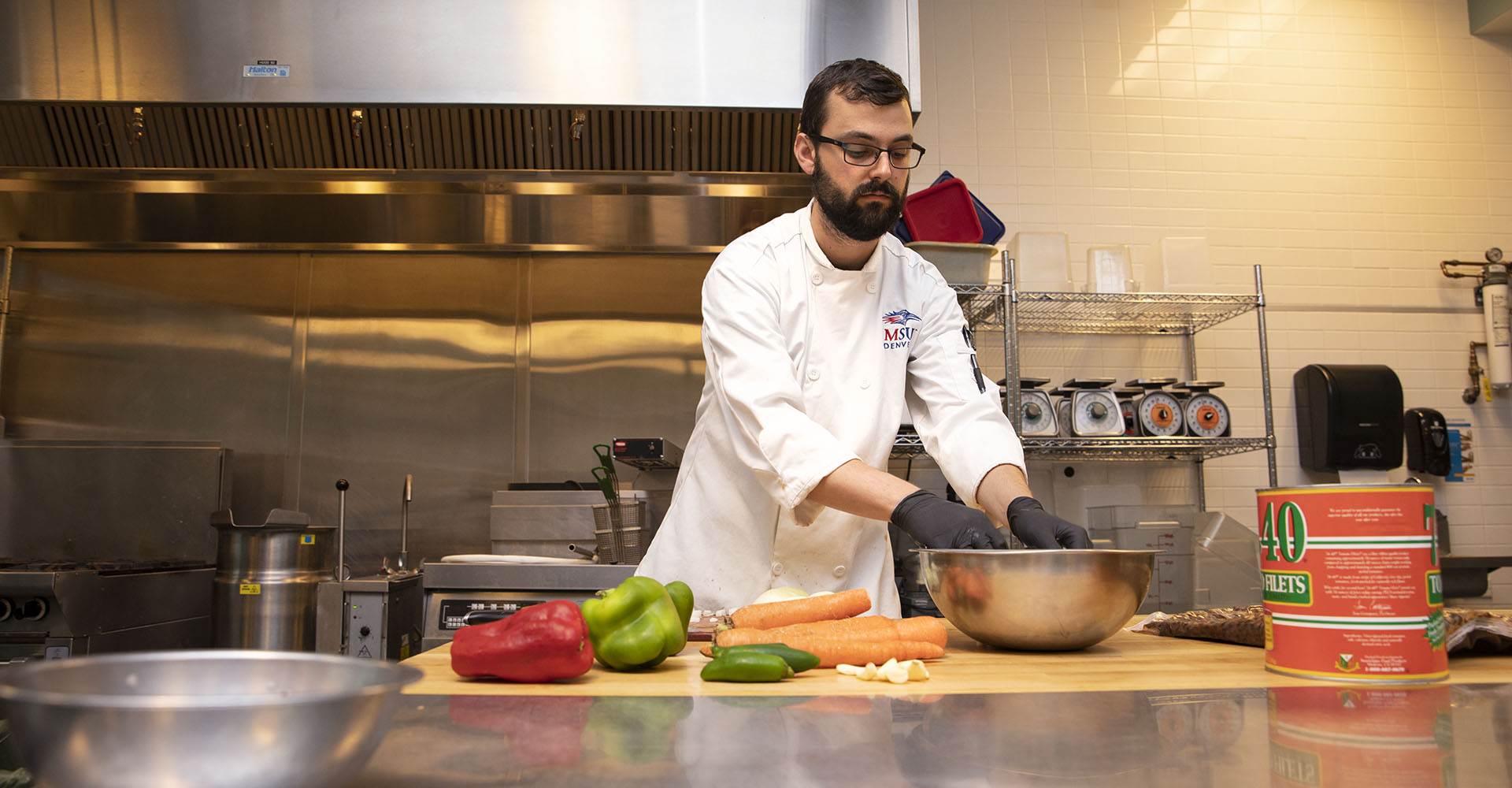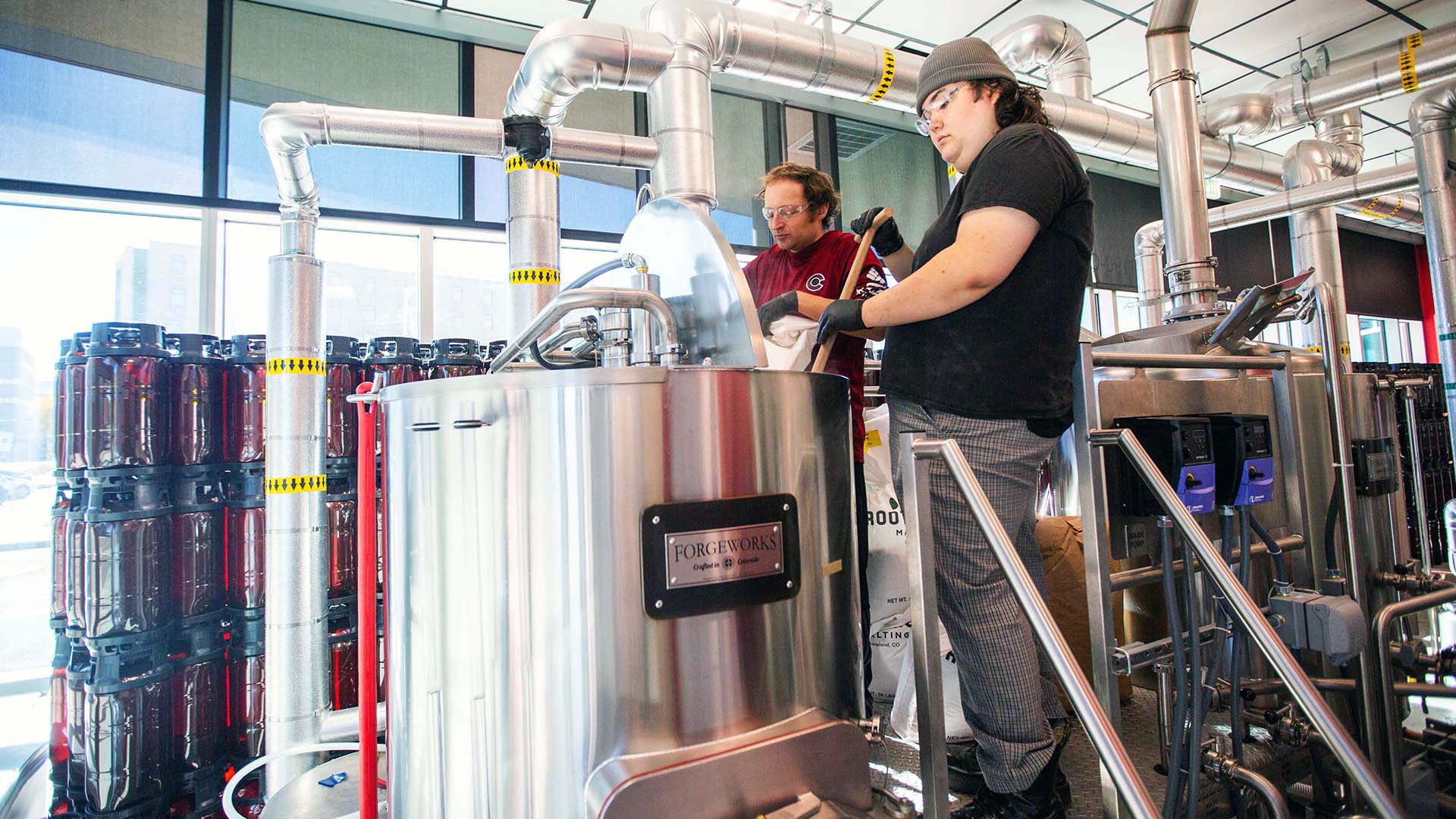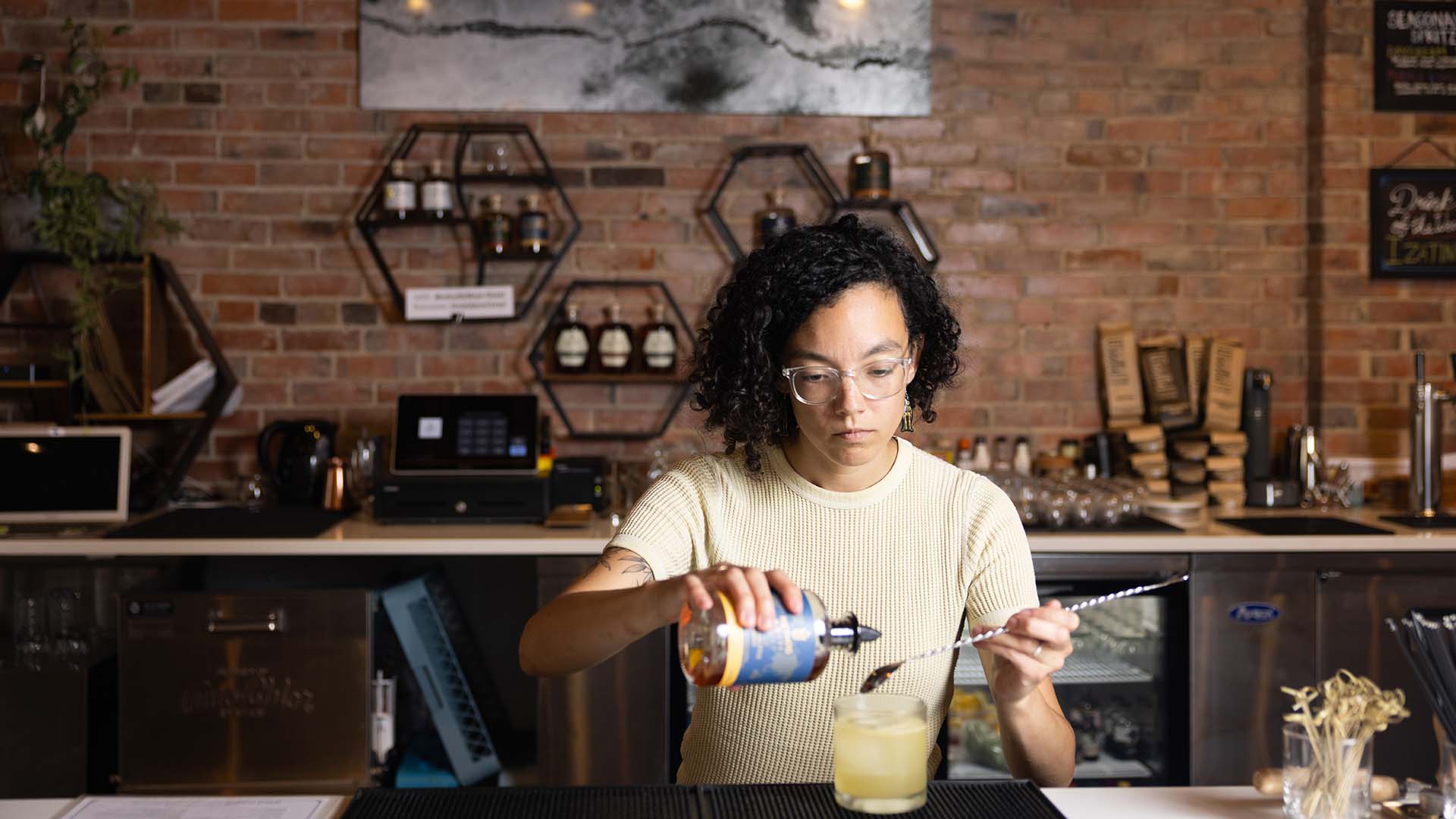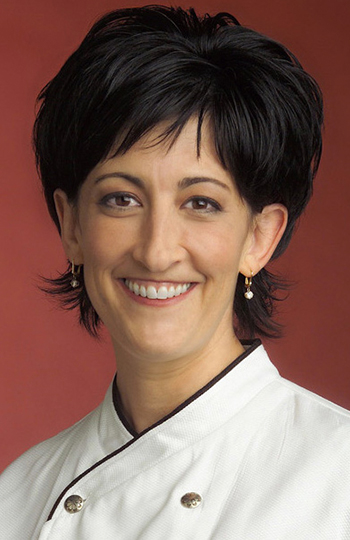Soup’s on!
A student-developed recipe for black-bean soup is helping other students combat hunger. Here’s the story – and the recipe.

When life gives you 140 pounds of black beans, you make black-bean soup.
That’s a new take on the old lemon adage Nolan Ackerman adopted to create single-serving portions of a delicious, nutritious soup available for Metropolitan State University of Denver students at the Roadrunner Food Pantry.
“Having a hand in helping address food insecurity for my fellow students is a great feeling,” the nutrition major said. “It’s extremely gratifying to help others get nutrition and a tasty meal – after all, we all have to eat.”
The effort came about when the pantry received an unexpected delivery from the Food Bank of the Rockies: a donation of 28 five-pound bags containing approximately 140 pounds of frozen, cooked black beans.
“Sometimes we get food in large quantities,” said Erica Quintana-Garcia, case-management coordinator with MSU Denver who oversees the Roadrunner Food Pantry. “We didn’t want to just hand out bags of beans to our students, so the next step was to figure out the best way to prepare it in the most efficient and user-friendly way possible.”

A recipe for collaboration
Enter MSU Denver’s renowned hospitality program.
Thanks to a partnership between the food pantry and school facilitated by chef Jackson Lamb, soups and chilis are made from ingredients that are on hand. They’re then frozen and distributed to hungry MSU Denver students out of the pantry as a part of the University’s ongoing effort to combat food insecurity.
“We were able to transform a commodity that’s not easily distributed into lunch or dinner for someone facing food insecurity,” Lamb said. “This project shows that good-quality and nutritious food can be made when you least expect it.”
To make the soup, Lamb looked to his food-production-and-service class to come up with a recipe incorporating onions, peppers, tomatoes, vegetable stock and spices made available through the Hospitality School. Ackerman, who’s also pursuing a certificate in restaurant management, developed a base recipe into the scalable variant now filling Roadrunner bellies this fall.
It’s in line with his own zigzaggy road, too. Ackerman began his culinary career in Seattle as so many do – as a dishwasher, before moving his way up to line cook and relocating to Denver. A stint at McMurdo Station in Antarctica also had him cooking for researchers at the end of the Earth.
He’s planning to parlay these experiences into eventual graduate study in food science and work in research and development and quality control with bigger food companies one day. And a big part of this is the foundational knowledge he’s gained as a Roadrunner – whether it’s serving one person or 1,000.
“My perspective has definitely changed with the classes I’ve had here at MSU Denver,” Ackerman said. “It helps you know what to look for when you feed your family regarding micro- and macronutrient intake.”
The former includes vitamins and minerals – the “little stuff we need to stay alive,” he noted – while the latter consists of energy-rich carbohydrates and proteins. A nutritional analysis with Lamb confirmed that the soup contained both, ensuring that students are getting an easily microwavable meal that tastes great and is great for them, all while making sure valuable resources are used.
“Food waste and food insecurity go hand-in-hand,” Lamb said. “In conquering food waste, you create an intended consequence: food for all.”

Food for all
With Ackerman and Lamb recently delivering a third batch of the soup and many beans left, hungry students have a resource to take stock in – literally.
It’s an in-demand one, too, as the pantry logged 1,653 visits across the fall 2018 and spring 2019 semesters.
“We’ve been trying to incorporate fresher food available to students,” Quintana-Garcia said. “Especially for folks who have dietary restrictions, as we’re always looking to serve the largest population we can.”
This latter element is especially salient to Ackerman, who along with his brother grew up vegetarian and has friends with various dietary sensitivities.
“If it was going to be available in the pantry, I wanted to make sure it was accessible to the widest range of people possible,” Ackerman said. “There are a lot of folks with strict allergies and intolerances – having food options for them is important.”
It’s also beneficial for the campus-based resource that will begin accepting materials for fall food baskets; donations can also be made online.
Together, the partnership has been a recipe for success. But what about the flavor?
“It’s really good,” said Quintana-Garcia. “There’s a little bit of spice to it; it’s definitely a hearty soup that’s great for fall.”
That spice comes from cumin and fresh jalapenos, staples of Southwest cuisine that Ackerman noted were a natural fit for ingredients to come together complementarily.
“When life gives you black beans, this is a way to make something delicious out of it,” he said.







